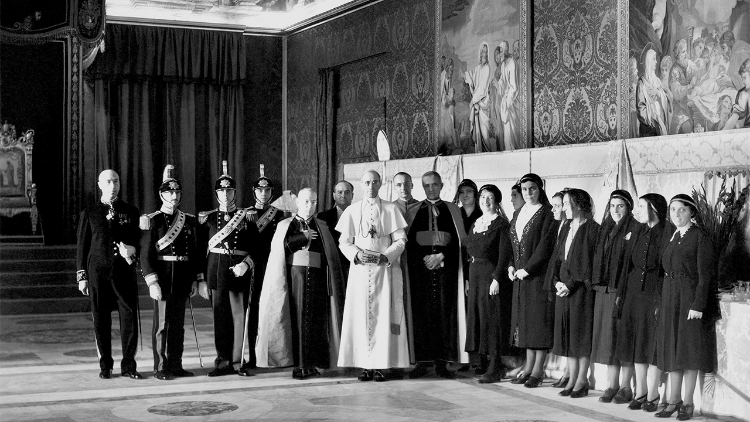
Legacy of Pope Pius XII lives on 66 years after his death
By Kielce Gussie
In 1939, the 260th successor of St. Peter was elected. Not only would he face the challenge of leading the Church, but also the horrors of the second World War. And his response would be remembered for decades. This man was Pope Pius XII.
Starting in the Vatican
Eugenio Pacelli was born in Rome on March 2, 1876. At 23, he was ordained to the priesthood and began his work in what would become a long career at the Vatican. Pacelli served as a clerk in the Secretariat of State, then as Nuncio to Germany, where he brokered agreements between Bavaria and Prussia.
In 1929, Pope Pius XI created him a cardinal. 10 years later, in a brief one-day conclave, Pacelli was elected Pope and chose the name Pius XII.
A Pope in challenging times
World War II broke out six months after Pope Pius XII began his 19-year papacy. He used his diplomatic background to respond to the violence and published his first encyclical, “Summi Pontificatus,” which called for prayer to end the war. This was just the beginning of his mission of peace during the world war.
German historian, Dr. Michael Hesemann, said Pope Pius XII “did more to save Jews and to stop the killings than any politician or religious leader of his time.” Since 2009, Dr. Hesemann has studied the Vatican Archives and has refuted the idea the Pope had remained silent and uninvolved. Rather, Pope Pius XII spoke about the treatment of the Jews in three public speeches. In 1939, he petitioned for 20,000 visas for German Jews to escape the Nazis but he only received less than 10,000.
Throughout the six-year war, the Pope worked clandestinely to protect the Jewish people. He understood that speaking out publicly against the Nazis could lead to greater violence and persecution. “Every word that we addressed to the responsible authorities and every one of our public declarations,” he said, “had to be seriously weighed and considered in the interest of the persecuted themselves in order not to make their situation unwittingly even more difficult and unbearable.”
A modern approach to the war
The second pontiff to use the radio, Pope Pius XII delivered almost 200 radio speeches in different languages to speak out against the violence and promote peace. Additionally, he wrote a number of documents, including 41 encyclicals.
Silence broken
At a special audience at the Vatican on November 29, 1945, 80 delegates from German concentration camps personally thanked Pope Pius XII for his words and actions taken during the Nazi regime.
In 2020, Pope Francis opened an archive of documents relating to Pope Pius XII and his relations with the Jewish people during World War II. As a result, the work of this “silent” pontiff was uncovered. 16 million pages recount the difficult period of world history. These documents reveal that more than 4,200 Jews were hidden in convents and monasteries and 160 in Vatican City. Thanks to Pope Pius XII and other Church members, 80% of the Jews in Rome survived the Nazi occupation—more than anywhere else.
Thank you for reading our article. You can keep up-to-date by subscribing to our daily newsletter. Just click here










